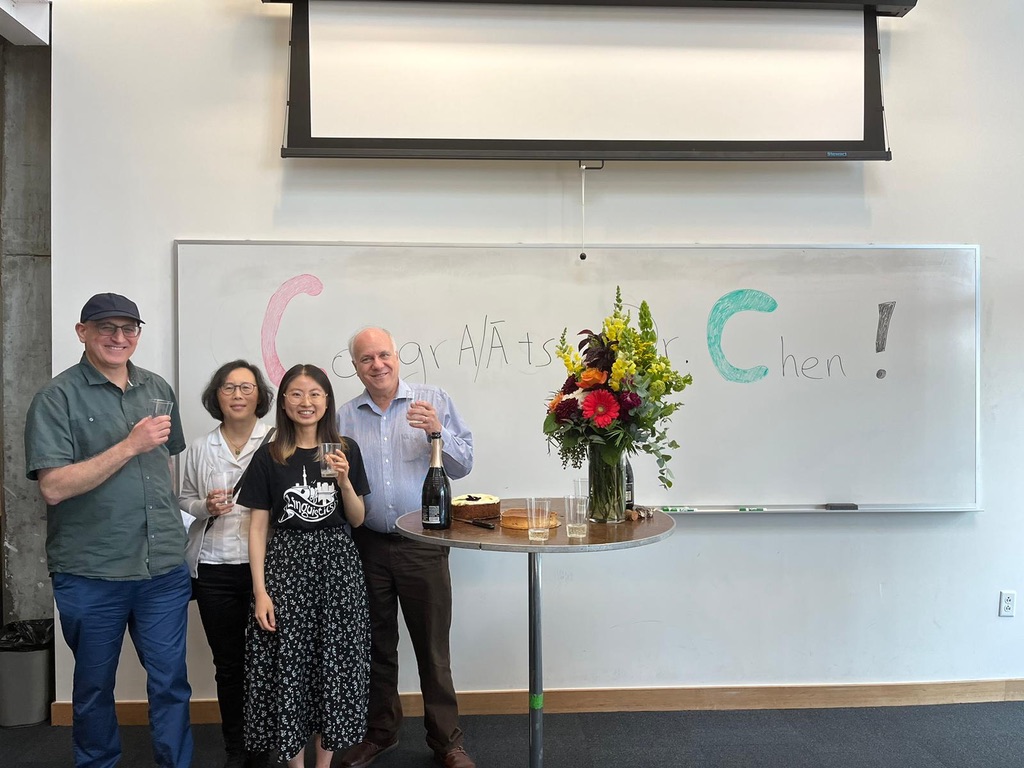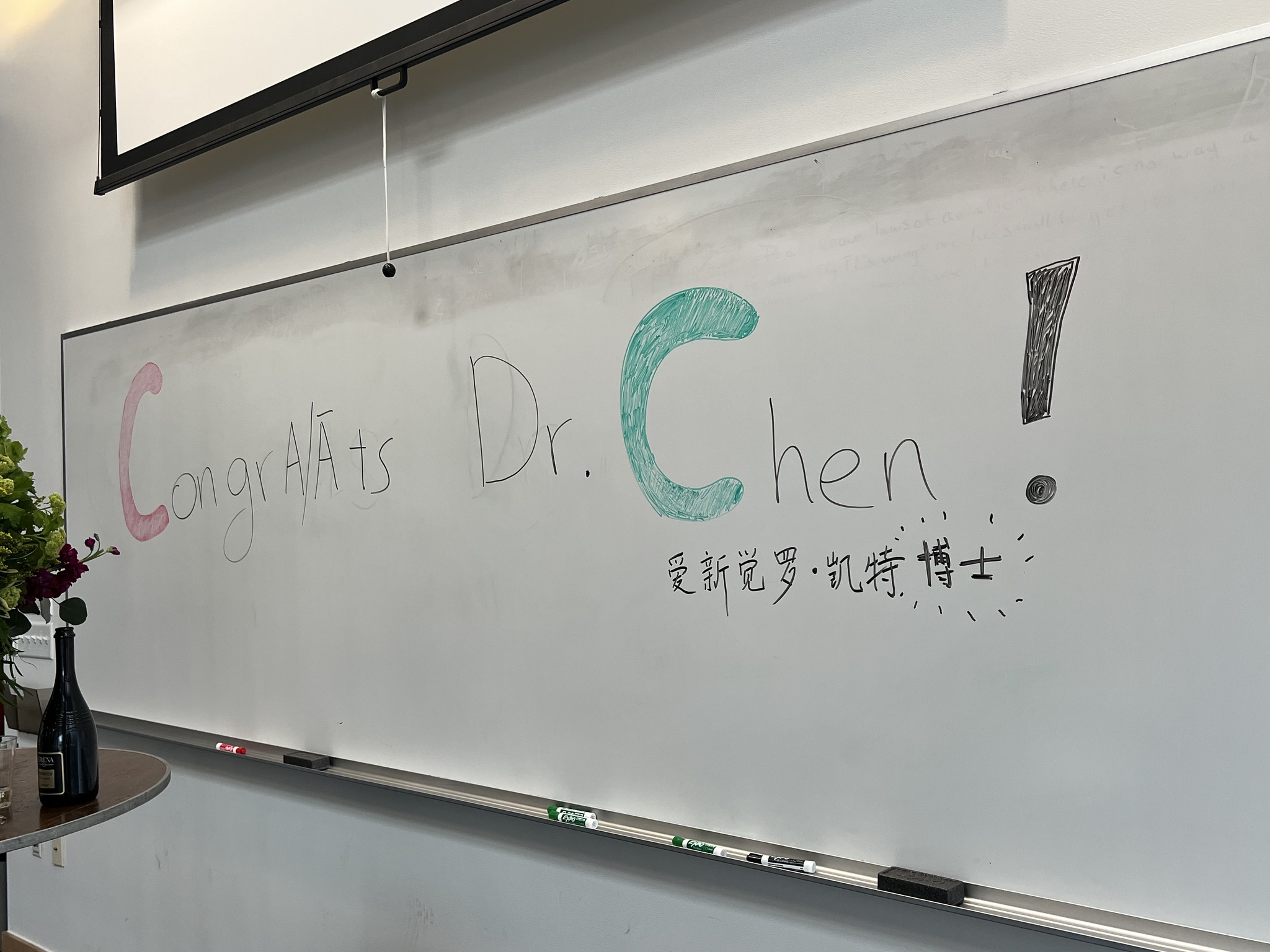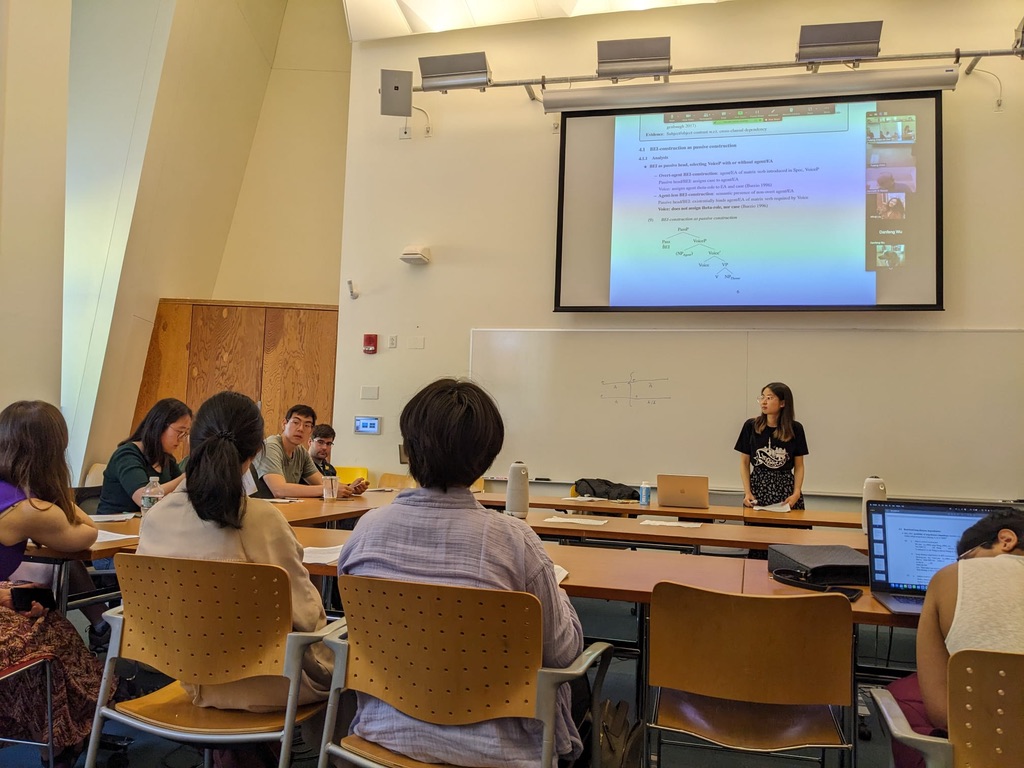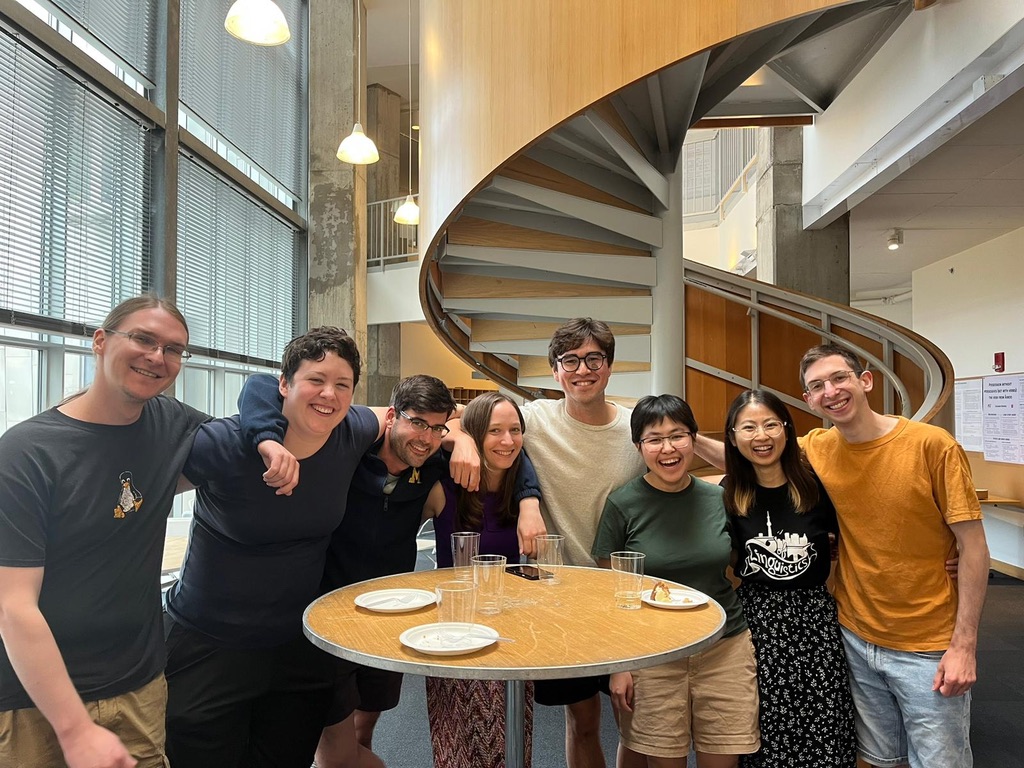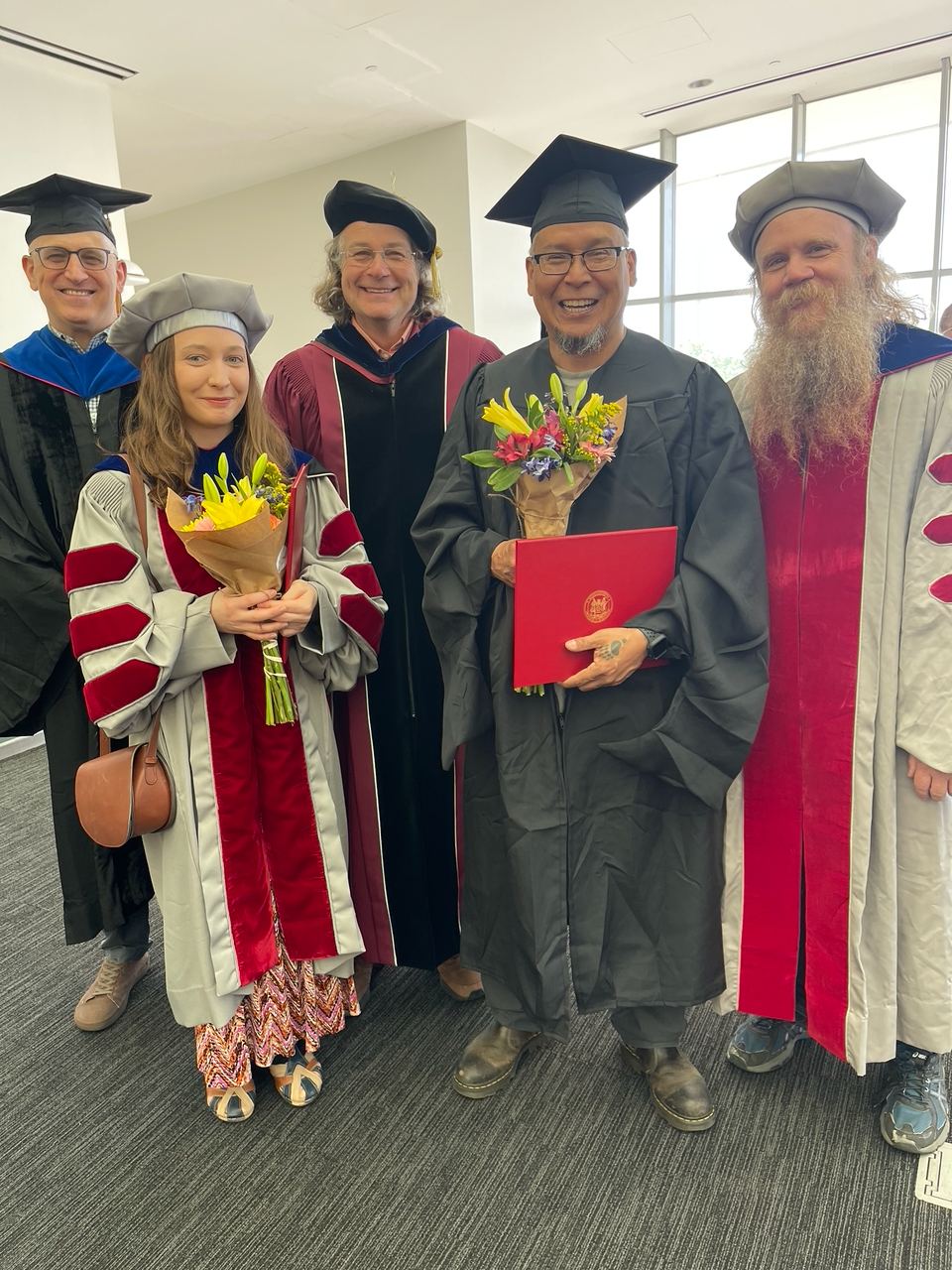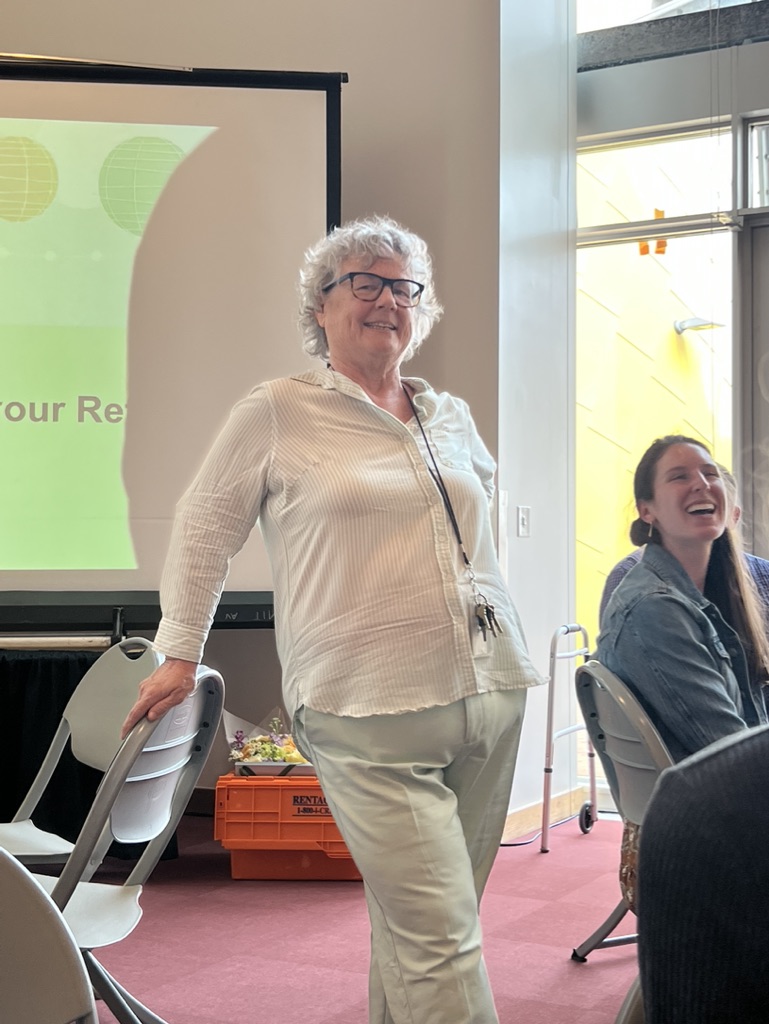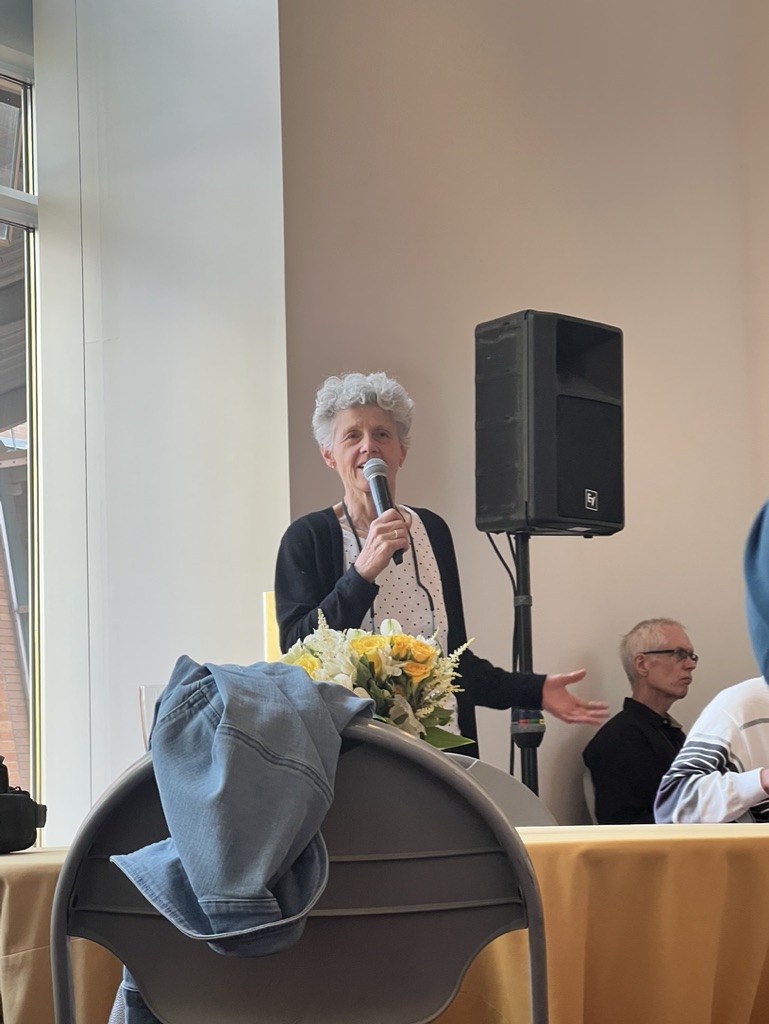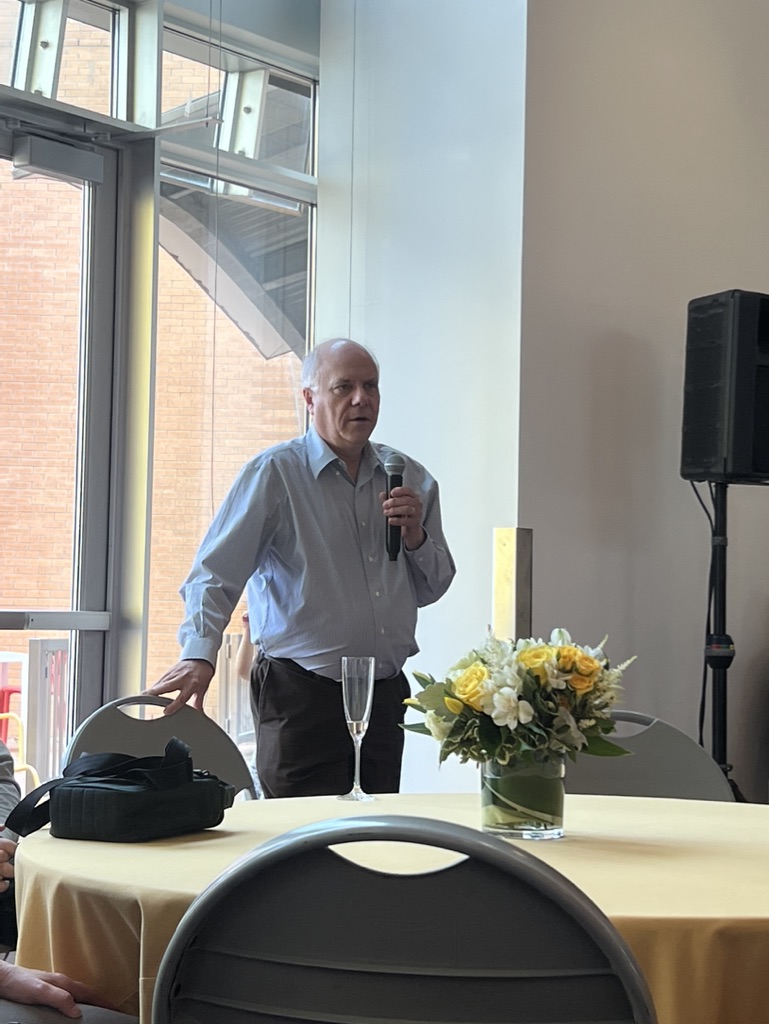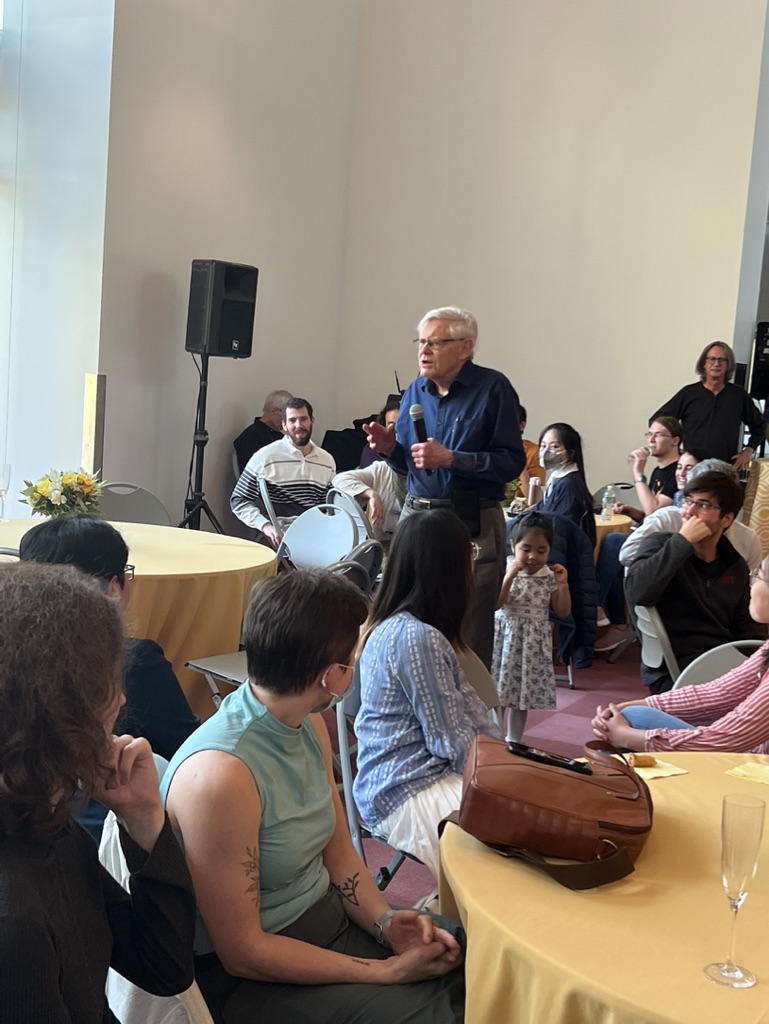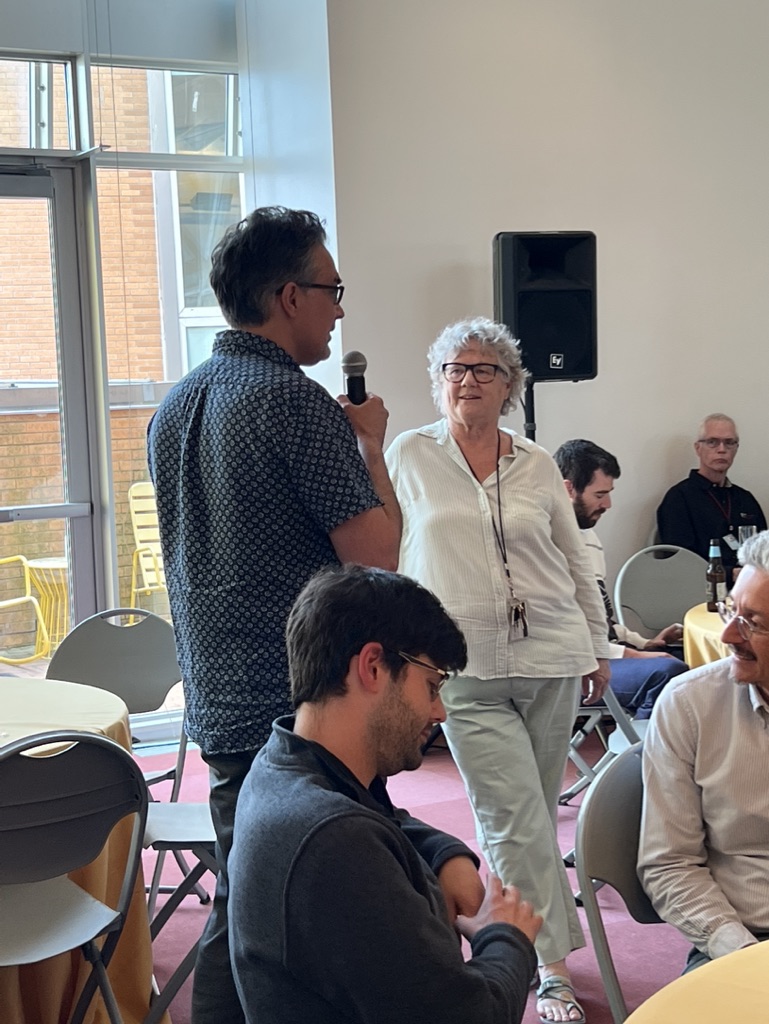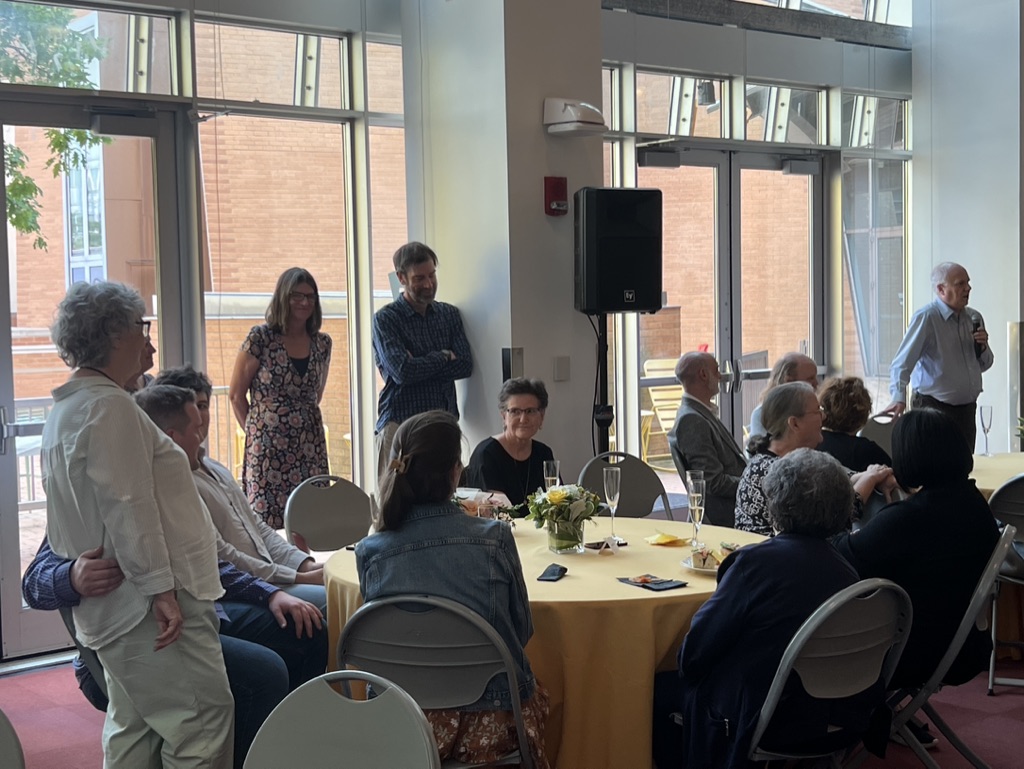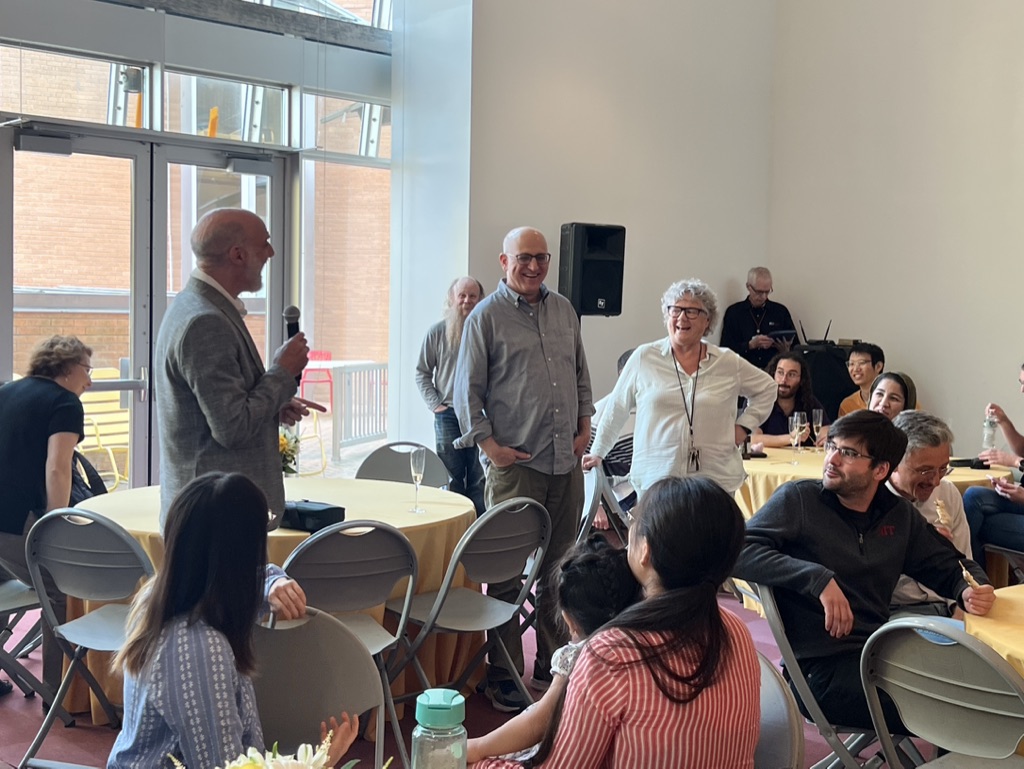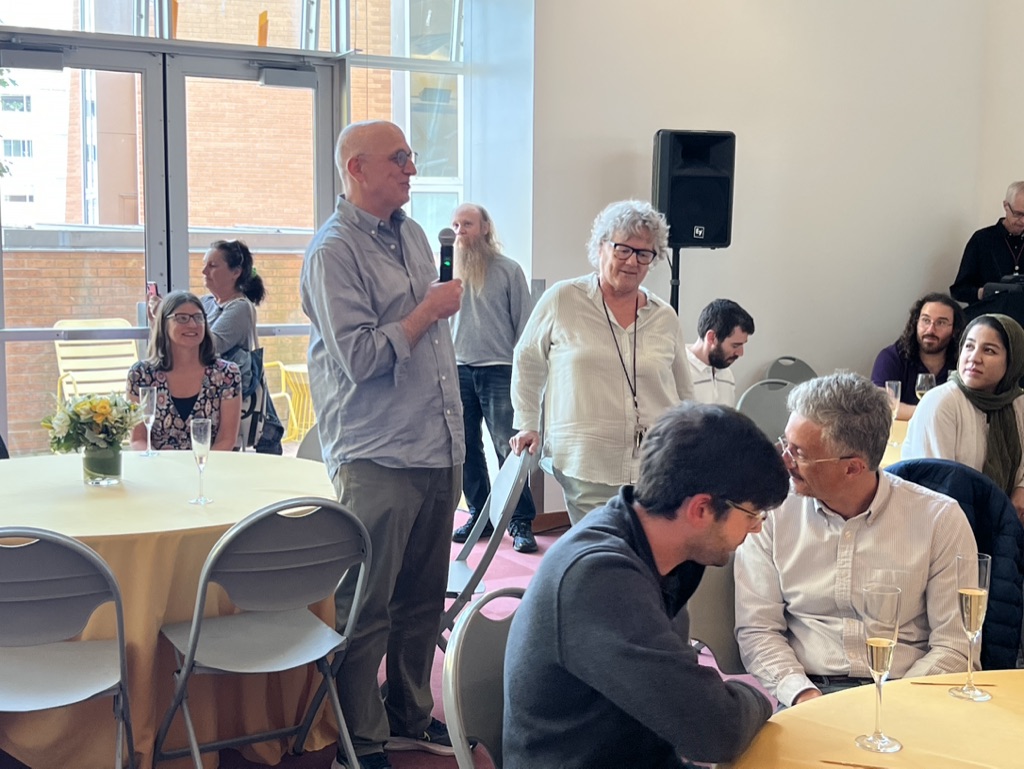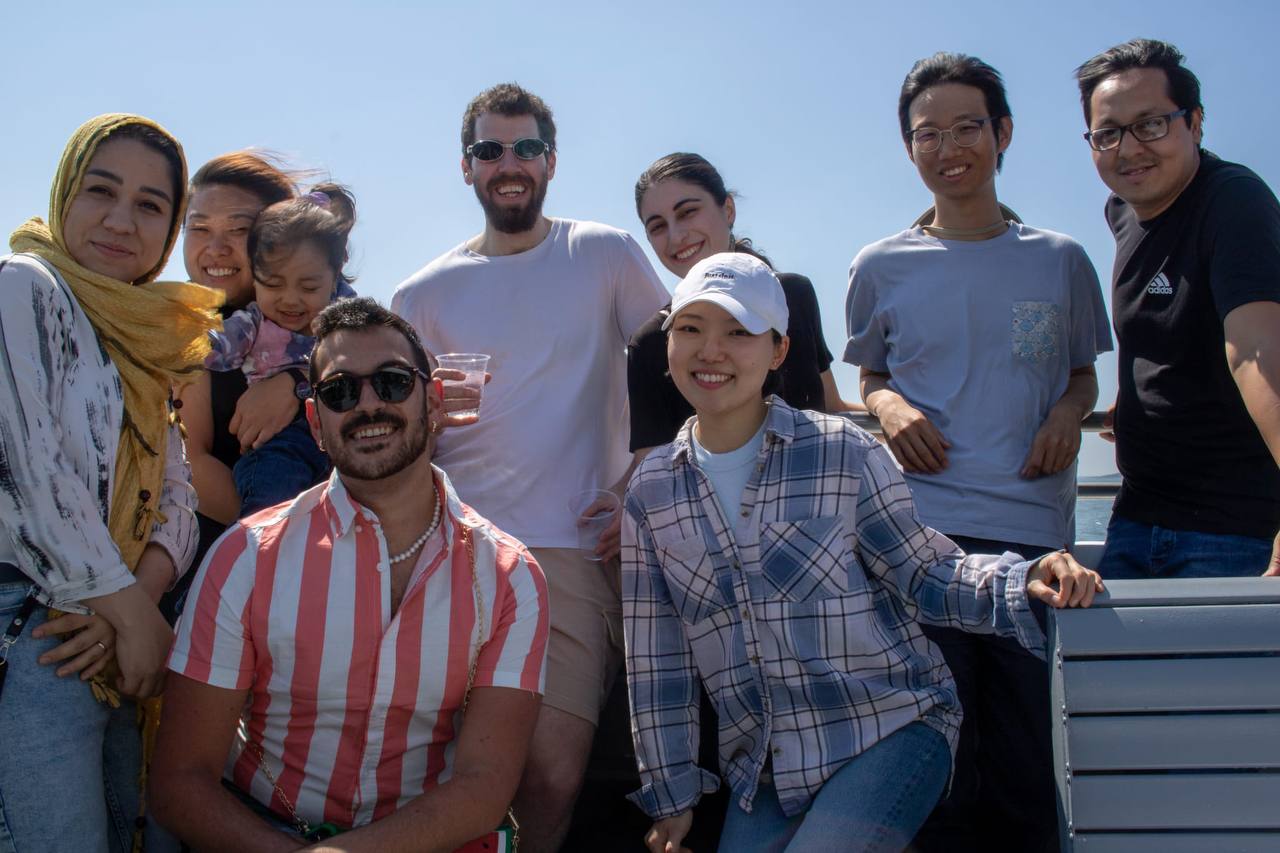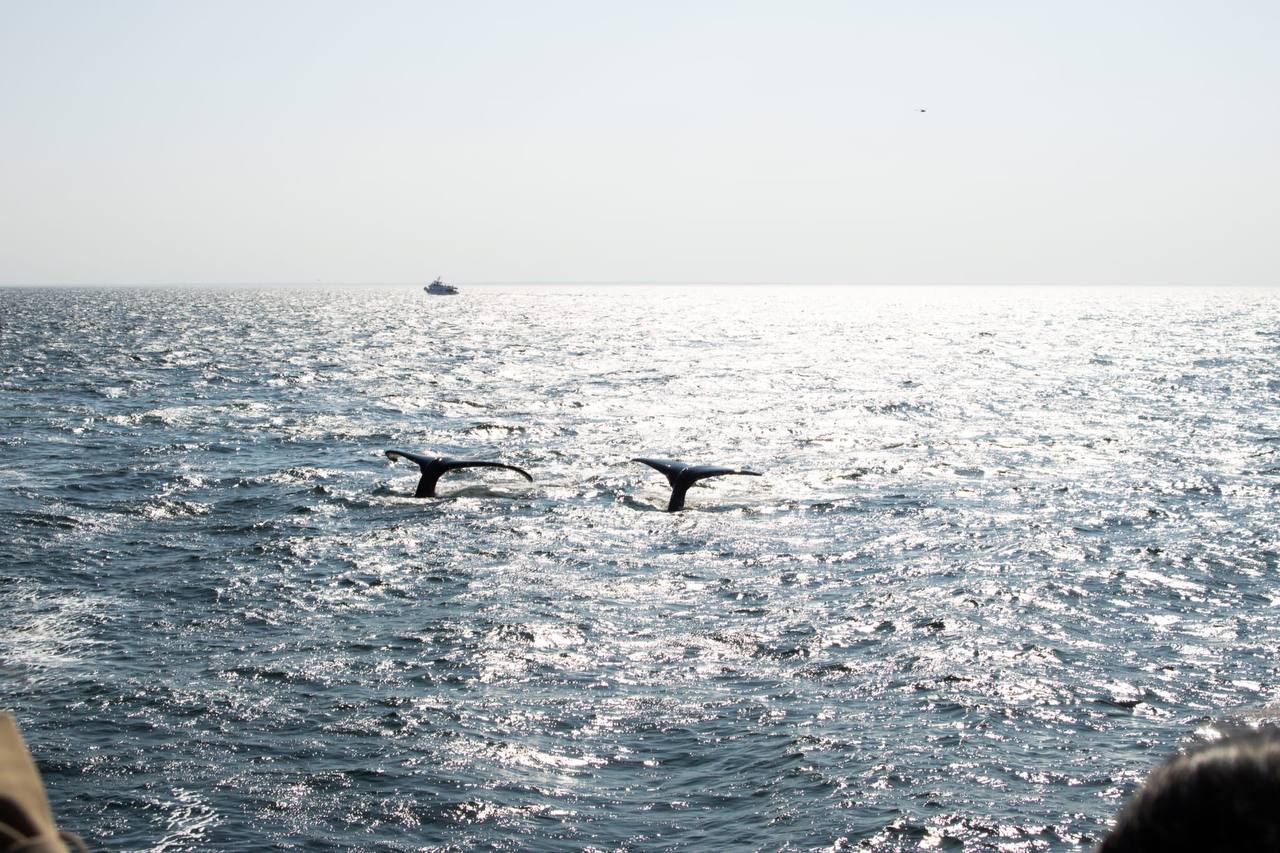Thesis Abstract:
In this dissertation, I investigate the apparently distinctive syntactic properties associated with the BEI-construction, the BA-construction, and resultative constructions in Mandarin Chinese, which I argue obscure properties that are universal across natural languages.
In the case of the Mandarin BEI-construction, it exhibits both passive-like and tough-movement-like properties. I argue for a novel analysis of the BEI-construction as a passive construction, where the passive head/BEI hosts a composite probe [φ+Ā], which triggers composite A/Ā-movement, in the sense of Van Urk (2015). The subject in the BEI-construction is derived via (successive-cyclic) composite A/Ā-movement, followed by a terminating step of A-movement, similar to Longenbaugh’s (2017) analysis of English tough-movement. Under the proposed analysis, the mixed A/Ā-properties associated with the BEI-construction are direct consequences of composite A/Ā-movement (following Van Urk 2015; Longenbaugh 2017).
In the case of the Mandarin BA-construction, it involves an apparently pre-posed noun phrase (the post-BA NP) with an affectedness interpretation, which can be identified with either the subject of a resultative phrase in a complex predicate or the direct object of a simple transitive verb. I argue for a novel analysis of the Mandarin BA-construction as a causative construction, where the causative head, which selects a predicate of the caused/resulting event and projects a predicate of the causing event (following Pylkkänen 2002, 2008), has two additional arguments: a causer and a causee. The post-BA NP, as the causee argument of the causative head, also controls a PRO subject in the resultative phrase (following Huang 1992), which is overt in complex-predicate BA-constructions and is phonologically null in simple-transitive BA-constructions (following Sybesma 1992, 1999). The post-BA NP is interpreted as being affected in the causing event, in the sense that it is caused to perform an action or undergo a change of state (following Alsina 1992). Lastly, in the Mandarin resultative constructions, there is no apparent unaccusative-unergative distinction, unlike languages like English, where distinctions between resultative constructions with unaccusative and unergative matrix verbs follow from the Unaccusativity Hypothesis (Perlmutter 1978; Burzio 1986) and general principles such as the Direct Object Restriction (Simpson 1983; Levin & Rappaport Hovav 1995) and Burzio’s generalization (Burzio 1986). I argue that resultative constructions in Mandarin are causative constructions, where the causative head has four possible argument structures, depending on whether the matrix verb is unaccusative, unergative, or transitive, as well as the semantic relation between the matrix subject and the matrix verb (and between the post-verbal NP and the matrix verb). The argument structure of the causative head obscures the argument structure of the matrix verb, giving rise to the absence of an apparent unaccusative-unergative distinction.
The dissertation showcases how Mandarin provides insight in defending and expanding our knowledge of cross-linguistic properties such as passivization (which embodies Burzio’s generalization and feature-driven movement), composite probing, the bi-clausal syntax and bi-eventive semantics of causative constructions, as well as the nature of affectedness (in causative constructions) and the implications for the Unaccusativity Hypothesis and the Uniformity of Theta-Assignment Hypothesis (Baker 1988).
